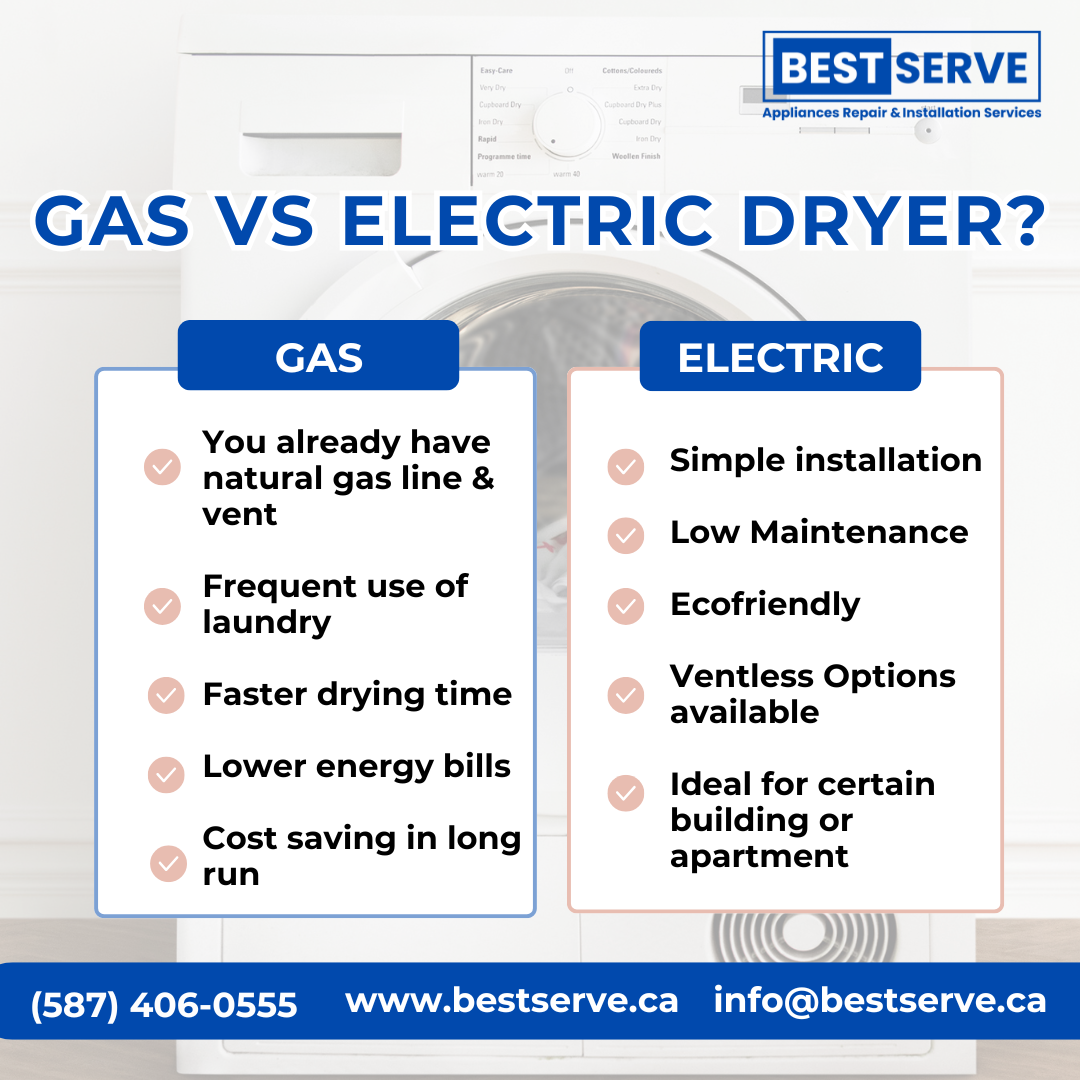Gas vs Electric Appliances: Smart Choices for Your Home in 2025
Gas vs Electric Appliances: Which One Should You Choose for Your Home?
Choosing the right appliances for your home can be overwhelming, especially with the ongoing debate between gas vs electric appliances. The decision you make impacts energy bills, installation costs, performance, and even safety. In this blog, we’ll explore the advantages and disadvantages of both, so you can make a smart, informed choice for your home.
Table of Contents
Gas vs Electric Appliances – A Quick Overview
Gas appliances are powered by natural gas or propane, while electric appliances rely solely on electricity. Each type has unique characteristics that affect performance, cost, and convenience. For instance, gas stoves are popular for their instant heat and precise temperature control, while electric stoves are often praised for their safety and energy efficiency. Many modern homes combine both types — using gas for cooking and electric for laundry — to get the best of both worlds.
Understanding the difference is crucial before investing in appliances like stoves, ovens, dryers, and water heaters. The right choice depends on your home setup, lifestyle, and long-term energy costs.
Advantages of Electric Appliances
Electric appliances are widely favored for their safety, ease of installation, and low maintenance.
Safe and Easy to Install
Electric appliances don’t require gas lines or complex venting systems, making installation safer and simpler. There’s no risk of gas leaks or carbon monoxide hazards, which is especially important for households with children or elderly family members.
Energy Efficiency and Low Maintenance
Many modern electric appliances, including stoves, dryers, and water heaters, are highly energy-efficient. They consume less electricity, which can help reduce monthly utility bills. Additionally, fewer moving parts mean lower maintenance requirements and fewer repair costs over time.
Environmentally Friendly Options
Electric appliances can be powered by renewable energy sources like solar or wind, reducing your carbon footprint. This makes them an attractive choice for eco-conscious homeowners.
Disadvantages of Electric Appliances
Electric appliances often take longer to heat up than gas appliances. During power outages, they are non-functional, which can be inconvenient. In regions where electricity is expensive, operating costs may also be higher compared to gas appliances.
Advantages of Gas Appliances
Gas appliances remain popular due to their performance, speed, and cost efficiency.
Lower Operating Costs
Natural gas is generally cheaper than electricity, which makes gas appliances more economical to operate in the long term.
Instant Heat and Better Control
Gas stoves, ovens, and dryers heat instantly, allowing for precise temperature control. This is particularly beneficial for cooking meals that require accuracy and for drying clothes faster.
Reliable During Power Outages
Gas appliances can often continue to operate even during power outages, providing convenience and reliability when you need it most.
Disadvantages of Gas Appliances
Gas appliances require proper installation with venting, and regular maintenance is essential to prevent leaks or carbon monoxide hazards. Safety is a priority, so certified technicians should always handle installation and servicing.
Gas vs Electric Appliances – Which One Is Right for You?
Choosing between gas and electric appliances ultimately depends on your home’s setup, lifestyle, and energy costs.
- Home Setup: If your home already has a gas line, gas appliances may be more cost-effective and provide faster heating.
- Safety and Maintenance: Electric appliances are generally safer and require less maintenance.
- Usage: Consider how you cook or do laundry. If precise cooking control is important, gas stoves might be ideal. For simple, low-maintenance operation, electric appliances are a better fit.
Many homeowners opt for a combination: a gas stove for cooking efficiency and an electric dryer for convenience. This hybrid approach provides a balance between performance, cost, and ease of use.
Expert Tips for Homeowners
- Hire Certified Technicians: Always rely on professionals for installation and maintenance to ensure safety and optimal appliance performance.
- Check Local Energy Costs: Compare natural gas and electricity rates to understand long-term operating costs.
- Assess Your Household Needs: Choose appliances based on cooking habits, laundry requirements, and overall convenience.
- Plan for Energy Efficiency: Opt for energy-efficient models to save money and reduce environmental impact.
At BestServe Appliance Repair, we specialize in repairing and installing both gas and electric appliances. Our team in Calgary offers same-day service to keep your home running efficiently and safely.
Contact Us
Need help choosing or installing your next appliance?
📞 Call 587-406-0555
🌐 Visit bestserve.ca
📍 Serving Calgary and nearby communities
#GasVsElectric #ApplianceRepair #CalgaryHomes #BestServeAppliance #GasApplianceInstallation #ElectricApplianceRepair #HomeTips #SameDayService

